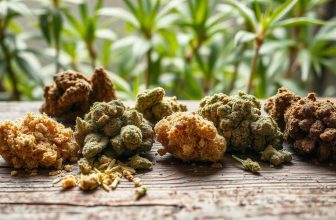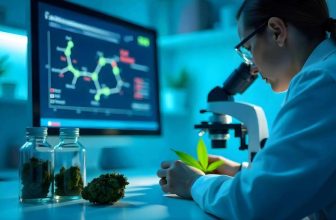Since they are both extracted from the cannabis plant, hemp seed oil and CBD oil are often mistaken for each other. When looking for cannabis-infused, know what makes these products distinct. The differences, for instance, can lie in the pricing, extraction process, ingredients, and applications.
What is Hemp Seed Oil?
Hemp seed oil is a product made using Cannabis sativa (Source: https://pubmed.ncbi.nlm.nih.gov/33332000/) plant seeds. This variety is favored because it is low on the psychoactive component, tetrahydrocannabinol (THC).
Hemp seeds are inserted into a press where they are crushed to make the oil. From there, the extract is purified and used for several purposes.
Due to its high-fat content, this oil is used as an ingredient in many food items. From edible capsules to relaxing oils, hemp seed oil comes in many forms and is used even as a beauty product.
Is There Any Difference Between Hemp and Marijuana?
There are no taxonomic differences between hemp and marijuana. Scientifically, they both belong to the Cannabacea family. This differentiation exists only due to legal restrictions.
One of the key differences is that both hemp and marijuana have different levels of tetrahydrocannabinol (THC) content.
THC is one of the 113 cannabinoids present in cannabis plants. This psychoactive component produces the “high” effect during marijuana use.
Tetrahydrocannabinol is considered a contaminant in hemp oil production because it is the chief psychoactive component in the cannabis plant. However, the surprising thing is that even hemp contains THC. But the THC levels in hemp are 0.3% or less, unlikely to produce a psychoactive “high.”
What are the Benefits of Hemp Oils?
Man has recognized the benefits of the hemp plant since 6000 BCE. Aware of the benefits, the ancient Chinese consumed both the oil and the seeds as part of their diet. The plant was also used as a building material.
Today, hemp oil has several uses.
1. As a Hormone Regulator
Hemp seed oil is known as “nature's most perfectly balanced oil.” It is high in Gamma-linoleic acid (GLA), which helps produce prostaglandins. These are acidic compounds that aid in relieving PMS while helping balance other reproductive hormones.
Hemp seed oil is also reported to help alleviate symptoms of menopause. Studies show that the oil also helps control the kidney’s sodium reabsorption reducing blood pressure.
2. As a Mood Booster
Hemp seed oil is an excellent mood regulator as hemp seed is rich in Omega-3 fatty acids. These fatty acids are therapeutic because they help release neurotransmitters in the brain, regulating mood. Studies show a positive result from Omega-3 supplementation in cases of anxiety (as you can see here: https://pubmed.ncbi.nlm.nih.gov/16741195/) and mood disorders.
3. Immunity Builder
The hemp seed oil contains high amounts of essential fatty acids. These acids help build and boost the immune system, even helping reduce the risk of heart disease. Due to its cannabidiol content, hemp oil also helps relieve the side effects of cancer treatment.
How is Hemp Seed Oil Made?
Hemp seed oil is produced using an oilseed press machine.
Step 1– Raw, harvested hemp seeds are put into the seed hopper, where a screw press crushes them.
Step 2- Next, the extracted liquid is carried by canals where the oil and the pulp get separated. Cold-pressing hemp seed is the best method to make hemp seed oil.
This type of production preserves the benefits of the hemp seed in the oil. In addition, this method also produces lesser amounts of phosphorus. As a result, cold-pressed hemp seed oil do not have what many classify as a “grassy” flavor. However, the cold-pressing method also produces less oil than other methods.
7 Differences Between Hemp Oil and CBD Oil?
1. Source Materials
Both hemp oil and CBD oil are made from extracts of the cannabis plant. But it is the seeds that form the main component in hemp oil production. On the other hand, CBD oil is made from the extracts of the stalks, leaves, and flowers of the hemp plant.
2. Marketing
Hemp seed oil is usually marketed and used as a nutritional supplement since it contains negligible traces of psychoactive components. It is a nutrient-rich product and is 25 times more omega-rich than olive oil.
CBD oil may contain more psychoactive components than hemp oil. Therefore, it has recreational usage and can be used for purposes other than nutrition. Even broad-spectrum CBD oil, which does not contain THC, aims to relieve pain, anxiety, and mood regulation. Some users even use it to treat epilepsy and addiction.
3. Ingredients
CBD oil often comes in three varieties, CBD isolate, full-spectrum, and broad-spectrum CBD oil. Full-spectrum CBD oil contains all the elements of the cannabis plant, including the psychoactive component THC.
Instead of containing the cannabinoids cannabidiol (CBD) and tetrahydrocannabinol (THC), the hemp seed oil is rich in Omega-3, Omega-6, and other high-nutrient fatty acids.
4. Extraction Method
In hemp seed oil production, the seeds are cold-pressed in a screw press to squeeze out the Omega-3-rich fatty oil.
Now, CBD oil is rich in cannabidiol (CBD) extracted via a unique extraction method. This process is also known as CO2 extraction because it involves using supercritical carbon dioxide.
5. Pricing
The extraction process for CBD oil is more complicated and expensive than hemp seed oil production.
Unlike the simple cold press, this method uses a special closed-loop extractor to get the CBD. This process is an expensive one, used mainly in perfume-making. As a result, genuine CBD oil products tend to be considerably more expensive than hemp oil.
6. Application
Hemp oil has a broader range of applications in comparison to CBD oil. It is used as an ingredient in everything from skin and hair products to salad dressings. On the other hand, CBD oils usually come in concentrated form, like drops and tinctures for direct application.
7. CBD Content
The CBD or cannabidiol content is a crucial marker of the difference between hemp seed oil and CBD oil. The former may or may not contain traces of the cannabinoid.
However, for a CBD oil to be considered a genuine product, it must contain cannabidiol since it is its primary component.
Follow us on 
Join the Community
Don't miss any news with our newsletter





